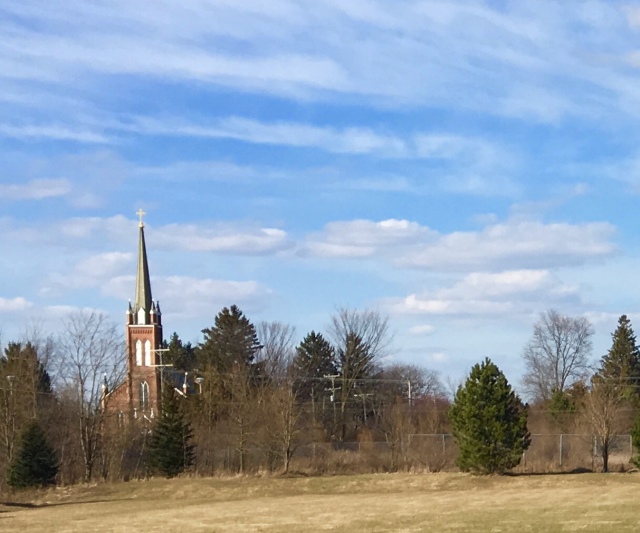
I have become convinced that white, American evangelical Christians have a major blind spot. I say this as a member of this community, reflecting on my own people.
Very often, we evangelicals do not see power. We are blind to power dynamics in the world and blind to them in the Scriptures. We cannot assess whether power is being used ethically and justly because we do not notice it is being used at all.
Here’s one way to test the teaching you’ve received and the lenses you’ve been given: were you taught that David’s sin with Bathsheba was primarily sexual? Or were you taught that his sin was the way he abused his power?
If you were taught to view David’s relationship with Bathsheba as a consensual, sexual liaison, I believe you’ve been taught to misread the story. Think about it. When you are talking about a king in the ancient near East and a female commoner summoned to his chambers, how could it possibly be consensual? Consent is only possible when both parties have power. Bathsheba had absolutely no power in that situation. And neither did her husband, Uriah, when he was ordered home from battle by the king. David’s primary sin was his extraordinary abuse of power—power that he used to claim Bathsheba sexually and to take Uriah’s life. This is a story not about sex, but about a king using his power to do evil.
Similarly, we repeatedly see Jesus condemning the pharisees in the New Testament. But, for what, exactly? For the ways they use their power! The pharisees held significant institutional power over the Jews in Jesus’ time, and according to him, they routinely used it to “tie up heavy, cumbersome loads and put them on people’s shoulders” that “they are not willing to lift a finger to move.” (Matthew 23:4) More than anything, the Pharisees’ sin was that they burdened rather than served the people they were positioned to lead. Jesus had very harsh words for this.
If we really want to be righteous, we must begin to notice power—both in Scripture and in the world. If we are serious about moral purity, we must get serious about noticing when we ourselves hold power, and we must commit to use it justly.
And that’s the trick—realizing that we do indeed hold power. In many situations every day. As parents over our children. As pastors over our flock. As bosses over our employees. As people with money over those without it.
If you are reading this and thinking that it does not apply to you because you do not perceive yourself to be very powerful, I want to warn you of one thing. Power is often invisible to those who possess it. Take a closer look around you. Are you over thirty? Are you middle class or above? Are you white? Are you an American citizen? Are you a man? Do you have a college degree? If you answered yes to any of those questions, then you hold power in many situations.
Now, to be clear, I do not believe that being a man or being white means you hold power in every situation, but it does mean that in most situations. There are contexts in our society where being white and being male means you hold less power than others do, but I would argue those contexts are relatively few in number. Power is situationally dependent and we must become students of the situations we inhabit.
Sometimes we hold relational power because we are well liked. Other times we hold power because of our position in the organization. Sometimes we hold power because we have money and that gives us choices that others don’t have.
We must begin to notice how much the Bible talks about power. When it uses words like “the oppressed” or “the weak”—issues of power are being named. The reason it continually holds leaders to the highest standards? Their outsized power—power they can use to heal and lift up or power they can use to burden and crush. The dynamics of power are named throughout Scripture; we only need eyes to see it.
Evangelical church, we must grow in wisdom and in shrewdness. Wise about all that the Scriptures say about power. Shrewd about how it operates in the world and in our own motives.
We follow a king who for a time laid down his power to rescue his subjects. We cannot claim to be like Him until we, too, are willing to lay our power down. And we cannot discern when we are called to lay it down until we learn to see it.

©Laura Goetsch and Thinking about Such Things, 2018.

Thanks for writing this. Huge reason I left the church. Disgusts me that Jesus was the opposite of the American church and yet if you don’t look white, act white and like everyone else, then you’re not a christian. Ridiculous.
Sent from my iPhone
>
LikeLiked by 1 person
Thanks Laura – this is awesome! I had occasionally thought about the Bathsheba situation before but never nailed it like you did! Of course I was taught it was about David’s sexual sin with no mention of the woman’s lack of power. This is SO important to grasp in current situations where women are abused, harassed, manipulated, coerced etc.
While I understand the anger at the church, my hope would be that rather than leaving it, one might stay, speak out and help encourage change.
Thanks again for your thoughtful writing!
LikeLike
Thanks, Sally! I appreciate your words.
LikeLike
Agreed.
I find that recognizing the power I wield takes reflective work and often in conjunction with the observations of my wife. Usually, I’m just blind to it (you’re right!). That’s why pray to be humiliated, that God would reveal to me and others my poverty. It’s not something I can see by myself.
LikeLike
Thanks for commenting, Chris! Yes, it’s easy to be blind to the power we hold. And it’s much easier to abuse it when we don’t see it.
LikeLike
What an excellent post and so timely. Thank you, Laura.
LikeLike
Thank you so much, Julie Anne!
LikeLiked by 1 person
Wow. I’m so grateful someone in the Church is speaking honestly and bluntly.
This pierces my heart as a victim and as a sinner. Power does go unnoticed… or should I say it’s masked under the guise that “God put so and so into this leadership position” so it can be weilded however leaders want. Many do not even recognize their — our — own sins of selfishness and pride. When we do recognize, it’s often so painful to tame that we don’t even try.
I have many ideas about this topic, some ideas of how to create change. God has been speaking to me and shifting my paradigm for a long time now. I’m writing (privately, maybe a book some day) and waiting, writing and waiting.
Thank you, Laura. I’m off to Google then follow you!
Blessings,
Erica
LikeLike
Thanks for commenting Erica. You won’t find much if you google me – I’m a very small player and I don’t have much of a online footprint. 🙂 I like your point about how often the only way some Christians talk about power is “God put so and so in power (and now they can do whatever they want)” – that’s true! What foolish thinking. God holds us MORE accountable once we’re in power, not less! I’m encouraged that you have ideas of how to create change–I can’t say that I have many.
LikeLike
Pingback: Power, Privilege & paralysis of the Church. – Amy Farrer
Excellent article, Laura. “Power is often invisible to those who possess it.” It’s so easy to point the finger at others who are in blatant positions of power, and yet not realize situations where we ourselves possess it and either use or abuse it. Thank you for illuminating the underlying issue in the David-Bathsheba story. I’d never thought of it that way, but totally agree with your points. I would love a follow up article, perhaps with some practical situations where we hold power and don’t realize it. I believe we are held accountable for the power we possess and how we use it for good or for evil. I would really like to “self-check” that I am using my power in ways that would align with His will. It’s hard to see what our blinders are concealing. Any practical tips for going forward?
LikeLike
Thanks, Lindsay! I’m going to think a bit longer before I write a follow-up focused on practicals. But here’s a start for you personally. Here are some of your attributes that give you social power – you’re white, you’re well educated, you’re upper middle class, you’re attractive, and you have social skills. Any time you are interacting with a person without those attributes, you likely hold more social power than them – a grocery cashier, someone who didn’t go to college, a person of color, someone socially awkward, etc. One way to start would be to notice all the situations in your daily life in which you interact with someone in these categories.
LikeLike
This is excellent. I find evangelicals tend to soften the word “power” by using “authority” instead. I think things would become clearer in many contexts if we stopped softening it.
LikeLike
Thanks for commenting. Your observation is very interesting! I would note that authority is actually different than power. Often we have power when we do not have specific authority.
LikeLike